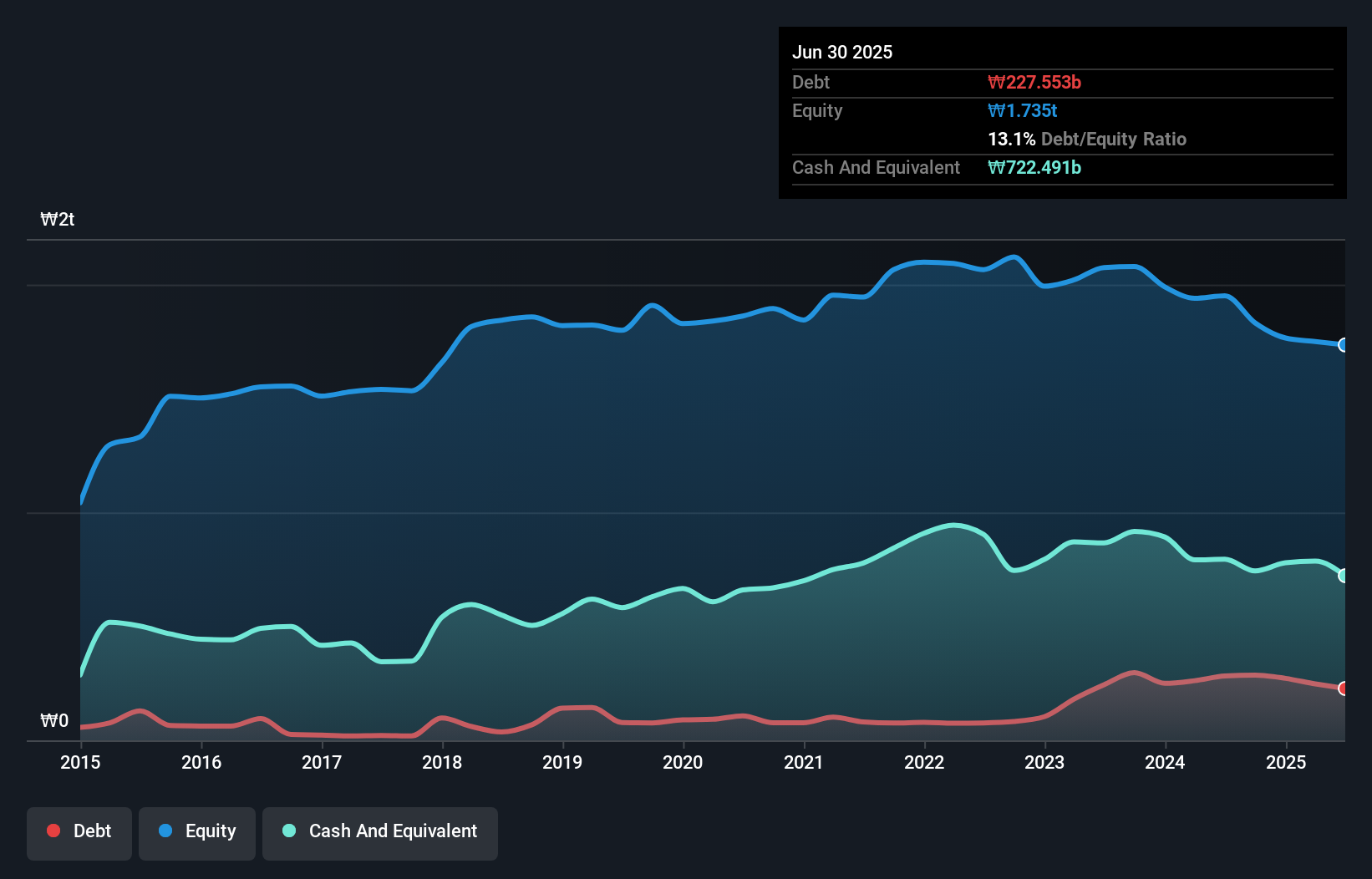Warren Buffett famously said, 'Volatility is far from synonymous with risk.' So it seems the smart money knows that debt - which is usually involved in bankruptcies - is a very important factor, when you assess how risky a company is. We note that NHN Corporation (KRX:181710) does have debt on its balance sheet. But is this debt a concern to shareholders?
What Risk Does Debt Bring?
Debt assists a business until the business has trouble paying it off, either with new capital or with free cash flow. In the worst case scenario, a company can go bankrupt if it cannot pay its creditors. While that is not too common, we often do see indebted companies permanently diluting shareholders because lenders force them to raise capital at a distressed price. Of course, the upside of debt is that it often represents cheap capital, especially when it replaces dilution in a company with the ability to reinvest at high rates of return. When we think about a company's use of debt, we first look at cash and debt together.
What Is NHN's Net Debt?
As you can see below, NHN had ₩227.6b of debt at June 2025, down from ₩282.2b a year prior. However, it does have ₩722.5b in cash offsetting this, leading to net cash of ₩494.9b.

How Strong Is NHN's Balance Sheet?
The latest balance sheet data shows that NHN had liabilities of ₩723.8b due within a year, and liabilities of ₩518.1b falling due after that. Offsetting this, it had ₩722.5b in cash and ₩414.1b in receivables that were due within 12 months. So its liabilities total ₩105.2b more than the combination of its cash and short-term receivables.
Since publicly traded NHN shares are worth a total of ₩872.3b, it seems unlikely that this level of liabilities would be a major threat. But there are sufficient liabilities that we would certainly recommend shareholders continue to monitor the balance sheet, going forward. Despite its noteworthy liabilities, NHN boasts net cash, so it's fair to say it does not have a heavy debt load! There's no doubt that we learn most about debt from the balance sheet. But it is future earnings, more than anything, that will determine NHN's ability to maintain a healthy balance sheet going forward. So if you want to see what the professionals think, you might find this free report on analyst profit forecasts to be interesting.
View our latest analysis for NHN
In the last year NHN wasn't profitable at an EBIT level, but managed to grow its revenue by 3.5%, to ₩2.5t. That rate of growth is a bit slow for our taste, but it takes all types to make a world.
So How Risky Is NHN?
While NHN lost money on an earnings before interest and tax (EBIT) level, it actually generated positive free cash flow ₩107b. So although it is loss-making, it doesn't seem to have too much near-term balance sheet risk, keeping in mind the net cash. Until we see some positive EBIT, we're a bit cautious of the stock, not least because of the rather modest revenue growth. There's no doubt that we learn most about debt from the balance sheet. However, not all investment risk resides within the balance sheet - far from it. For instance, we've identified 2 warning signs for NHN that you should be aware of.
If you're interested in investing in businesses that can grow profits without the burden of debt, then check out this free list of growing businesses that have net cash on the balance sheet.
Valuation is complex, but we're here to simplify it.
Discover if NHN might be undervalued or overvalued with our detailed analysis, featuring fair value estimates, potential risks, dividends, insider trades, and its financial condition.
Access Free AnalysisHave feedback on this article? Concerned about the content? Get in touch with us directly. Alternatively, email editorial-team (at) simplywallst.com.
This article by Simply Wall St is general in nature. We provide commentary based on historical data and analyst forecasts only using an unbiased methodology and our articles are not intended to be financial advice. It does not constitute a recommendation to buy or sell any stock, and does not take account of your objectives, or your financial situation. We aim to bring you long-term focused analysis driven by fundamental data. Note that our analysis may not factor in the latest price-sensitive company announcements or qualitative material. Simply Wall St has no position in any stocks mentioned.
About KOSE:A181710
NHN
An IT company, provides gaming, payment, entertainment, IT, and advertisement solutions in South Korea and internationally.
Undervalued with adequate balance sheet.
Market Insights
Community Narratives




